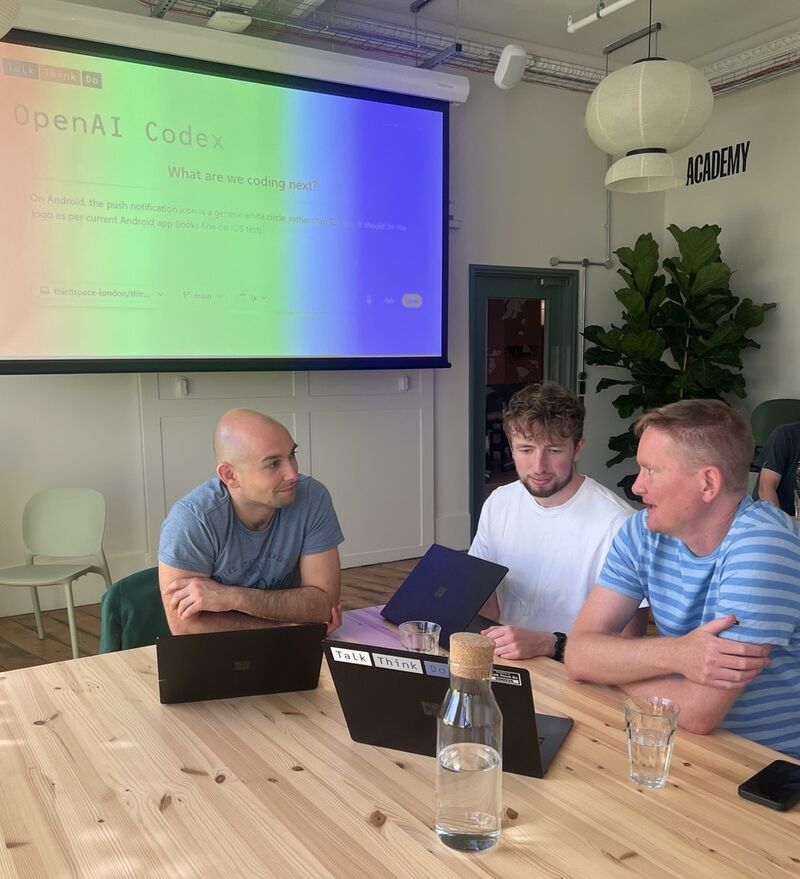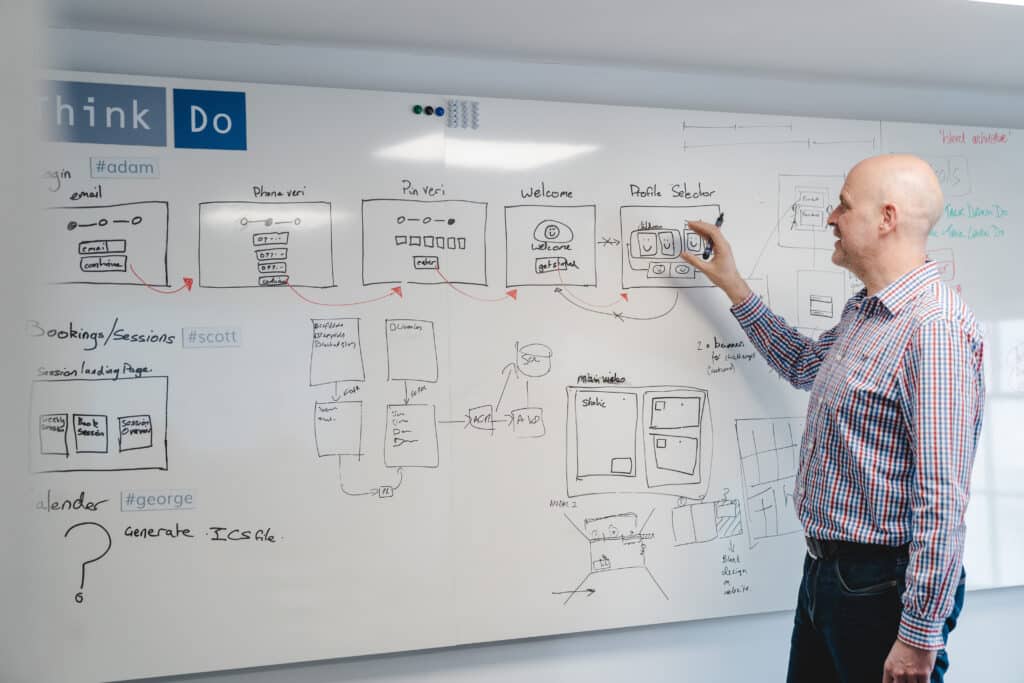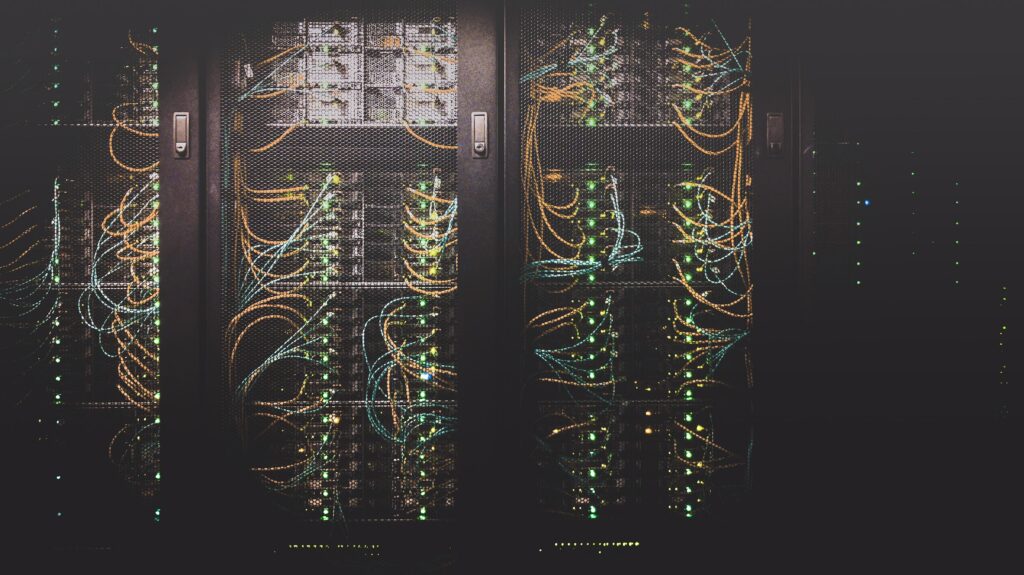World Mental Health Day: Tech and Mental Health

Ever since 1992, the 10th of October has been recognised as World Mental Health Day. First proposed by the World Federation for Mental Health, it’s an international day for global mental health awareness, education and advocacy against social stigma. And with the arrival of the COVID-19 pandemic, people everywhere are facing increased stress, worry and isolation, making this year’s World Mental Health Day perhaps even more relevant.
You may already be aware of Talk Think Do’s work as EdTech experts, using technology to empower young learners. Today, I’d like to talk about something just as important: how tech and mental health can come together to support children’s wellbeing.
The toll of the COVID-19 pandemic
It’s been a strange and difficult year for children and young people all around the world, with the closures of schools disrupting routine and education, as well the sudden new distances between them and their family and friends.
What has been a challenging time for all of us has been especially so for the most vulnerable demographics such as children, as this recent paper in The Lancet Psychiatry predicted in June. Research is still being conducted to discover the full impact, but, in the charity Young Minds’ summer survey, 80% of respondents said the coronavirus pandemic has had a negative impact on their mental health.
This is compounded by the fact that COVID-19 has made it more difficult for organisations dedicated to providing mental health support for children. It’s not an exaggeration to say that the pandemic meant a ‘perfect storm’ of factors came together to create challenges for mental health.
Breaking the storm
One organisation that felt the impact of COVID-19 restrictions is the children’s mental health charity stormbreak. Until the UK went into lockdown in Spring 2020, they had been working to improve the mental health of children across Britain through movement.
Up until lockdown, children had been able to participate in stormbreak’s activities at school and build skills and coping strategies that would support them now and into adulthood. But when COVID-19 forced school closures, the charity could no longer continue their work face-to-face.
stormbreak needed to get back to helping children as quickly as possible. Now homebound by lockdown, many children were less active than ever – less able to ‘break the storms’ they face mentally using happiness and health-boosting activities.
So, just like countless educational institutions, businesses and other organisations, the charity needed to switch to operating remotely. And, as stormbreak’s lead strategic and digital agency, Talk Think Do set to work with purpose.
Bridging distances and re-enabling support
We worked with the charity and its partners to create a solution that would allow them to do their work completely remotely – but still completely effectively. stormbreak would once again be able to engage with children via streaming video and other online content.
We put the user first in everything we do, but in this case it was especially vital. When the users are children, it’s even more crucial that everything is seamless, accessible and engaging. We also made sure we integrated five mental wellbeing pillars into everything – self-worth, resilience, optimism, self-care and hope – and created a reward system to encourage participation.
Using data to enhance services and research
Moving their activities into the digital world also presented stormbreak with a new opportunity, and one we were keen to help them make the most of. Data on the children’s progress could now be recorded and used to help the charity’s work become even more effective.
Children can now use simple emojis, like the ones they use in chat apps, to provide feedback on each session. That means stormbreak can improve and enhance their support for each individual child and the service they provide as a whole. Not only that, but this data can also be used by researchers at Bournemouth University – perhaps to enable future breakthroughs in understanding children’s mental health.
Conquering challenges and speeding ahead
What had begun as an obstacle to be overcome became a chance for stormbreak to expand their work into new and valuable directions that could benefit not just the children they support now but young people everywhere in the future. They’d always had the potential to create and use this data – we just enabled them to bring it out.
With their new system, stormbreak can now continue to do what they do best, to the fullest of their ability, remotely or in person. Whatever happens in the future, the charity now has the digital infrastructure in place to ensure continuity and keep providing the valuable support children depend on them for.
We look forward to working with stormbreak and helping them support children everywhere long into the future.
If you’d like to learn more about how we helped stormbreak, you can read the full case study. Or if you want to explore how Talk Think Do can help your organisation with digital transformation and unlock the power of your data, get in touch with us today.
Get access to our monthly
roundup of news and insights
You can unsubscribe from these communications at any time. For more information on how to unsubscribe, our privacy practices, and how we are committed to protecting and respecting your privacy, please review our Privacy Policy.
See our Latest Insights
Shipping AI in the Real World: Lessons From Our Latest Cycle
AI moves pretty fast. If you don't stop and look around once in a while, you could miss it. Recognising this, we have been running a structured approach to AI adoption for production systems. A critical element is ensuring we keep up with the latest approaches while retaining safety, responsibility and avoiding inefficiencies cause by...
Working as One Team: How Our Business Analysts Bridge Vision and Delivery
When clients partner with us, they often expect engineers and designers. But one of the most powerful roles behind a successful digital product is often less visible: the Business Analyst (BA). At Talk Think Do, BAs aren’t just requirement-gatherers. We’re connectors, between vision and execution, users and features, partners and platforms. In the recent delivery…
Implementing RAG AI Search on On-Premise Files with our AI Search Accelerator
As demand for AI‑powered tools like Microsoft Copilot grows, many organisations are asking the same question: “How can we harness the power of generative AI without moving our sensitive data to the cloud?” In this guide, we’ll explain why Retrieval‑Augmented Generation (RAG) is so effective for on‑premise data and walk through a practical approach using…
Legacy systems are costing your business growth.
Get your free guide to adopting cloud software to drive business growth.




